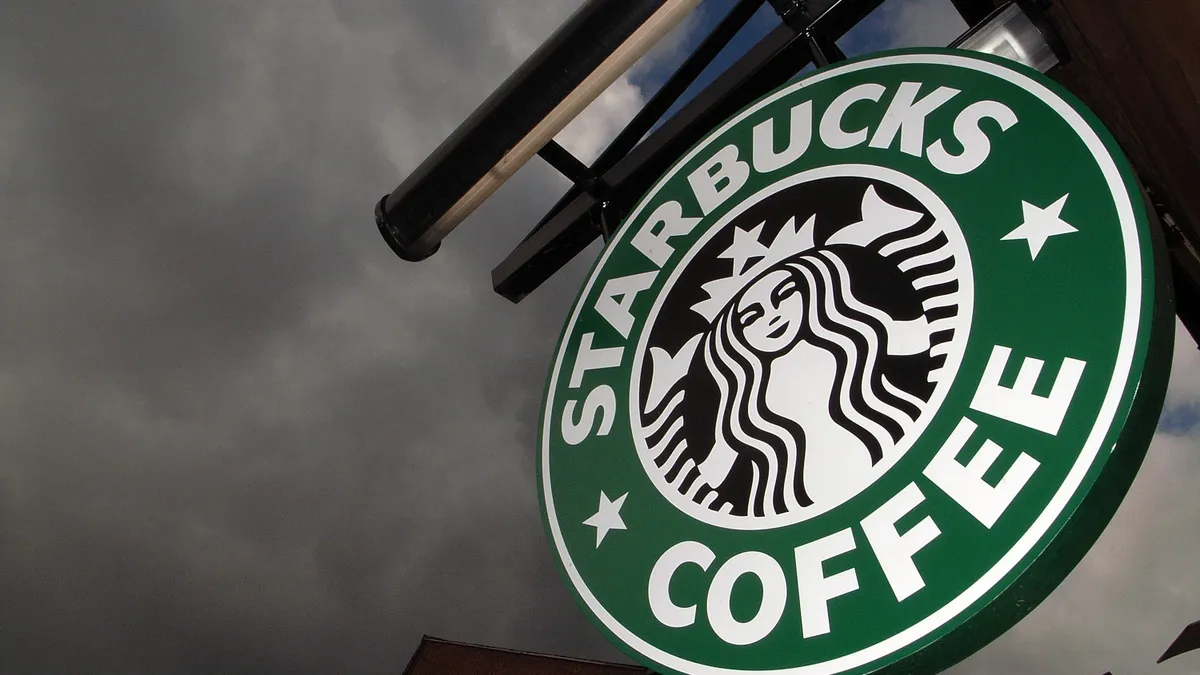Dive Brief:
- The National Labor Relations Board earlier this week reportedly filed a complaint seeking back payments and benefits since May to unionized Starbucks employees, but the coffee company says it withheld raises and better benefits to avoid direct dealing in violation of NLRB’s own rules.
- “When you voted to unionize, most changes to your wages, benefits and working conditions were paused,” the company said in a message to its employees last month. “After a store unionizes, under federal law Starbucks can no longer unilaterally change terms and conditions of employment, including benefits, for unionized partners outside of the collective bargaining process. Any changes outside of this process are considered to be ‘direct dealing,’ which is illegal.”
- NLRB says in its complaint the company owes the unionized workers the same raises and increased benefits that non-unionized workers have received since May. The agency also wants to require Howard Schultz, the company’s founder and interim CEO since earlier this year, to read a statement to workers about their union rights, according to a Washington Post report. As of August 25, the NLRB complaint was not publicly available.
Dive Insight:
The world’s largest coffee shop chain, with some 34,000 stores worldwide, has been wrestling for some time with employees over unionization efforts.
The first company-owned stores unionized in Buffalo last year, and since then more than 200 stores have followed suit, with more seeking to unionize.
In its complaint, reportedly, NLRB says Starbucks’ withholding of wage and benefit increases to unionized workers is intended to discourage further unionization.
But Reggie Borges, a Starbucks spokesman, told the Washington Post that’s not correct. “We’ve been clear in that we are following NLRB rules when it comes to unilaterally giving benefits,” he said in an email.
“Partners still have access to all Starbucks benefits already in place when the petition was filed,” the company said in its message to employees last month. “Any changes to your wages, benefits and working conditions that Starbucks establishes after that time would not apply to you and would have to be bargained.”
Since May, according to reporting, non-union workers have received raises of between 3% and 7%, depending on their job and length of employment, as well as faster leave accrual and training and career growth opportunities.
To determine the amount of back pay that’s owed, NLRB is asking the company for copies of payroll records, time cards and personnel reports, the Post says.
It also wants the company to send apology letters to workers and conduct training for managers and supervisors on workers’ rights and labor law, the Post says.
If the company doesn’t settle, an administrative law judge will hear the case in late October.
In recent actions, the law hasn’t been on the company’s side.
The company earlier this month, after losing a battle with the agency in Tennessee, was issued an injunction requiring it to rehire seven fired workers who were involved in unionization efforts.
“All Starbucks workers [should be able to] exercise their right to join together to improve working conditions & form a union,” NLRB’s general counsel, Jennifer Abruzzo, says in an August 18 tweet. “Employers should take note that the NLRB will continue to protect workers' right to organize.”











